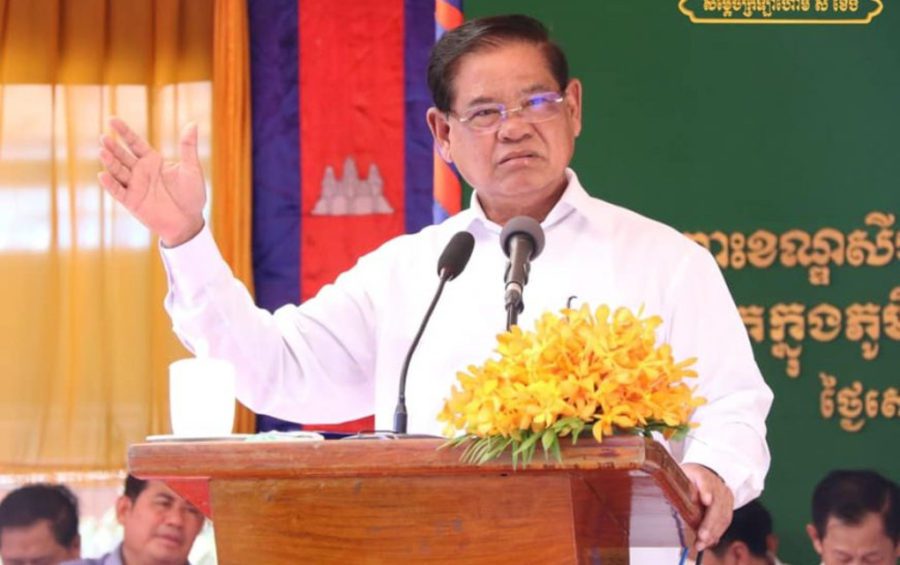The annual budgets of the country’s 1,646 communes will be increased to about $130,000 each beginning next year, Interior Minister Sar Kheng announced on Wednesday.
The sum is more than double this year’s budget of about $60,000, he said.
Speaking to a meeting of provincial councilors in Phnom Penh, Kheng said the exact amount distributed to each commune would vary based on population.
“I hope that our councils will use these funds transparently to participate in our local development to be even better,” Kheng said.
The budgets would remain around the same until 2023, he said.
Kheng added that commune administrations would receive training on how to effectively use the funds, which total more than $200 million overall.
The exact responsibilities of communes have not been precisely defined in law, with a 2002 sub-decree on the decentralization of powers to commune councils saying that local-level administrations “shall have a wide range of roles and functions.”
The roles, according to the sub-decree, include maintaining public safety, providing necessary services, promoting residents’ well-being, spurring economic development, protecting natural resources and mediating disputes.
Nuon Sophal, a councilor for the Grassroots Democratic Party (GDP) in Damnak Sokram commune, in Kampot province’s Dang Tong district, said he welcomed the budget increase but it was still not enough to meet the actual needs of the commune.
Commune councils also currently struggled to manage existing funds and mostly took direction from the district level, according to Sophal.
“Teach the commune councils how to manage and spend funds,” he said, suggesting that this would allow communes to be more independent and responsive in their decision-making.
Yong Kim Eng, president of the People Center for Development and Peace, said the expanded funding for communes was commendable, but let down by the fact that most commune councils were almost entirely dominated by the ruling CPP, creating more opportunity for corruption.
“In the past, there were more parties to check each other. When council members are from a single party, there might be no checks and balances,” Kim Eng said, calling for new mechanisms to ensure transparency.
“There’s a need to strengthen people’s ability … to follow the use of these funds,” he said.
The expansion of commune budgets was a hot topic during the 2017 commune election season, with opposition leader Kem Sokha campaigning on a platform of $500,000 a year for every commune. The minor GDP promised $1 million a year, while the CPP made no specific pledge.
The CPP won 6,503 seats in the elections, with Sokha’s CNRP trailing at 5,007 seats.
The Supreme Court dissolved the CNRP in November 2017 and the party’s commune seats were redistributed, mostly to the CPP.
In addition to the budget provided by the national government, communes also have the right to raise funds via grants and loans from domestic and international sources, according to the 2001 Law on Commune Administrative Management.
(Translated and edited from the original article on VOD Khmer)












